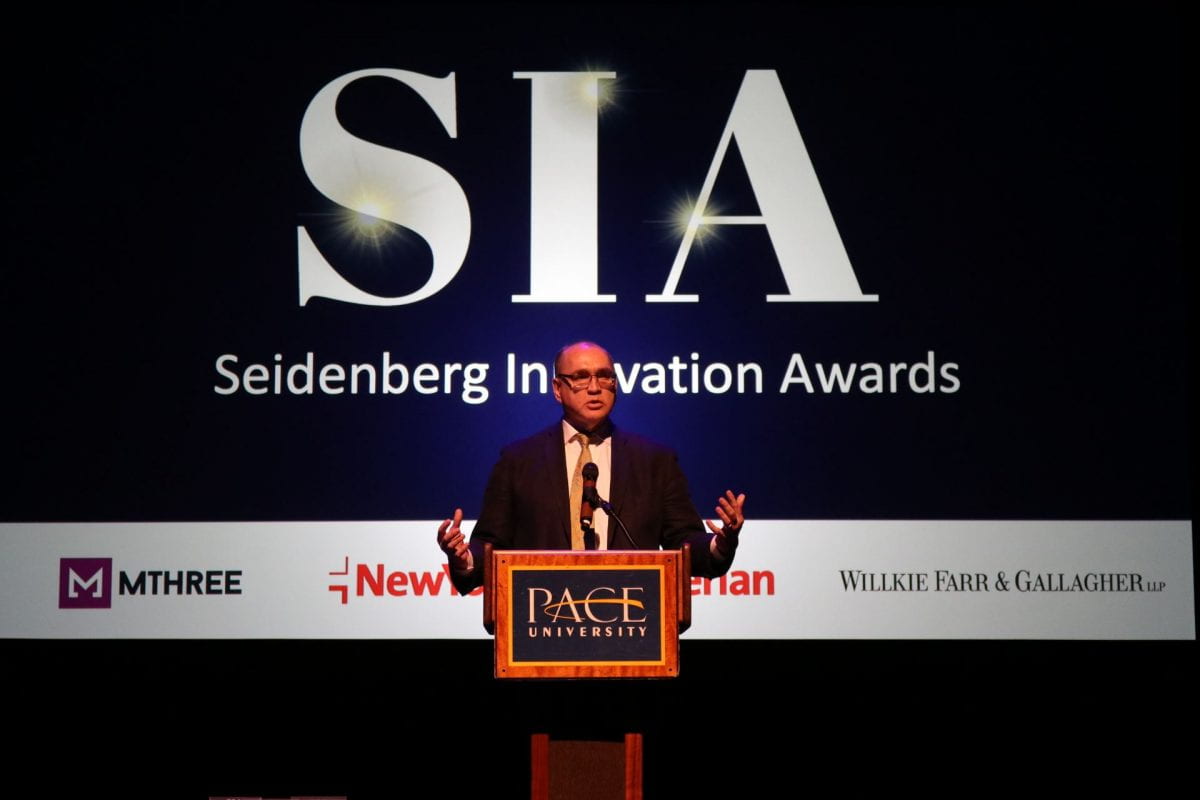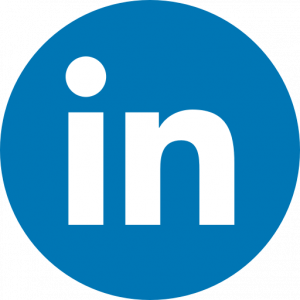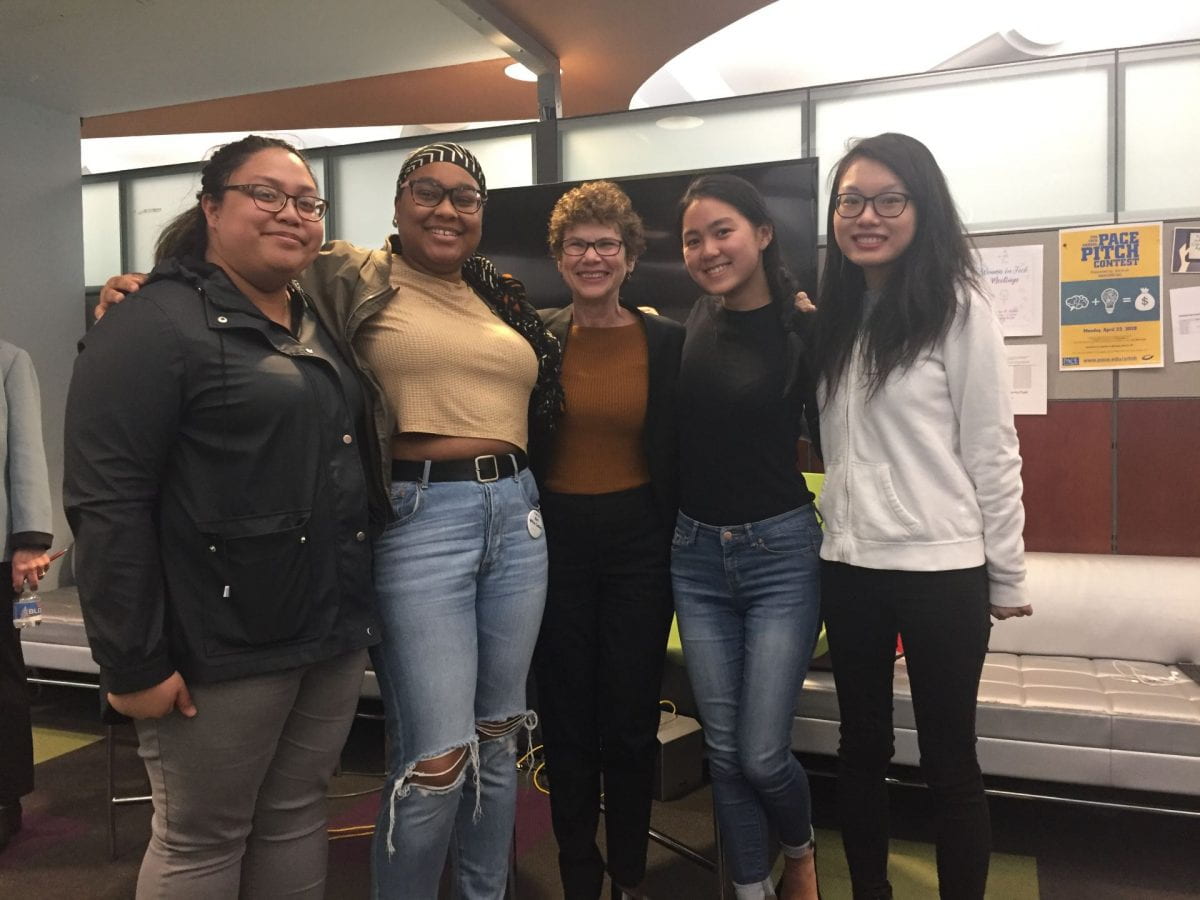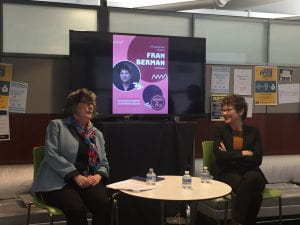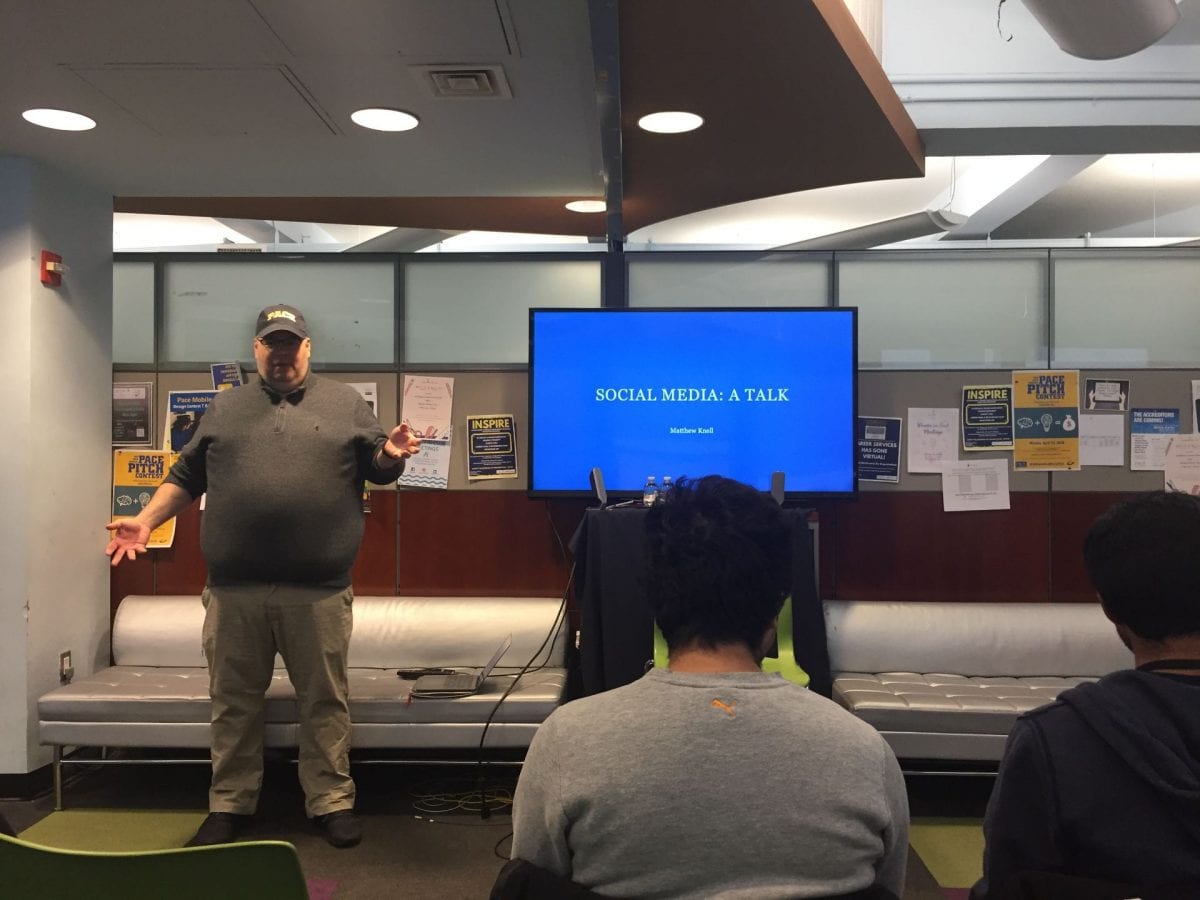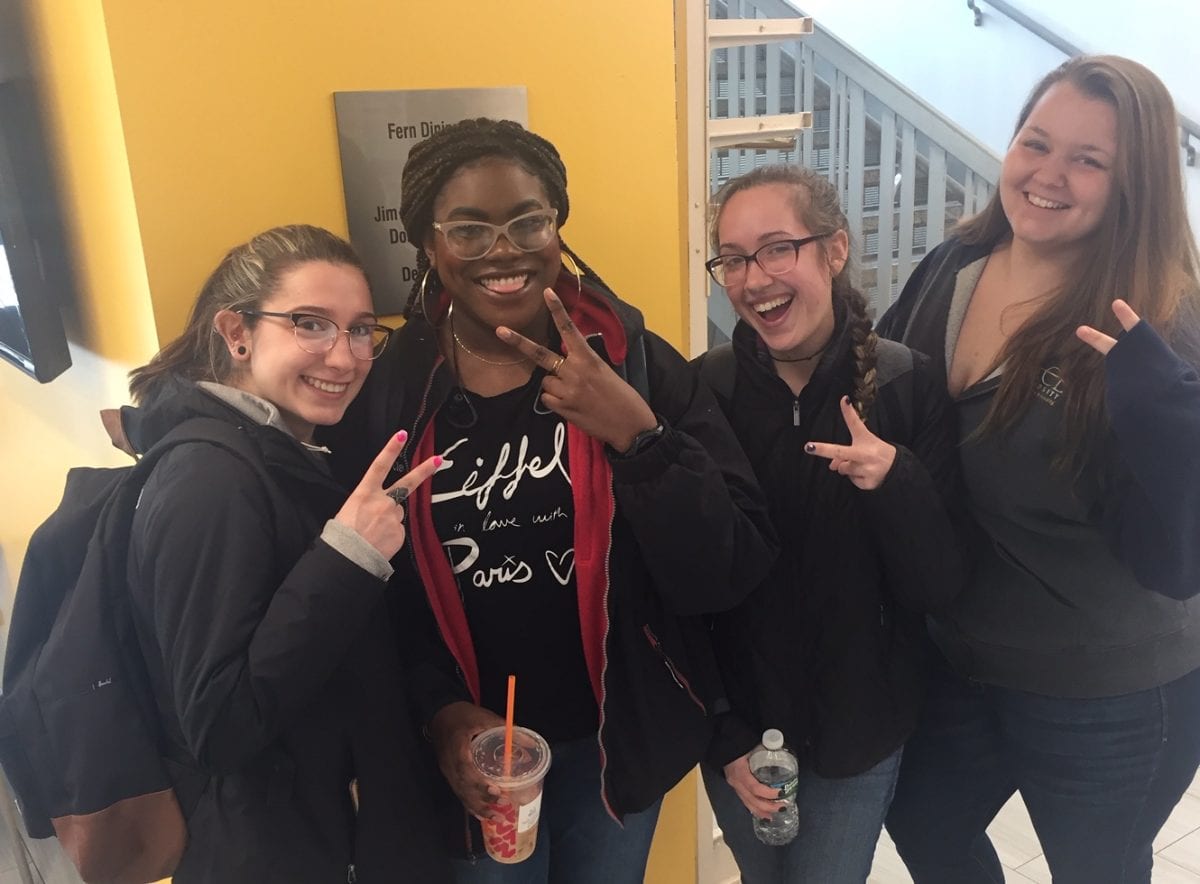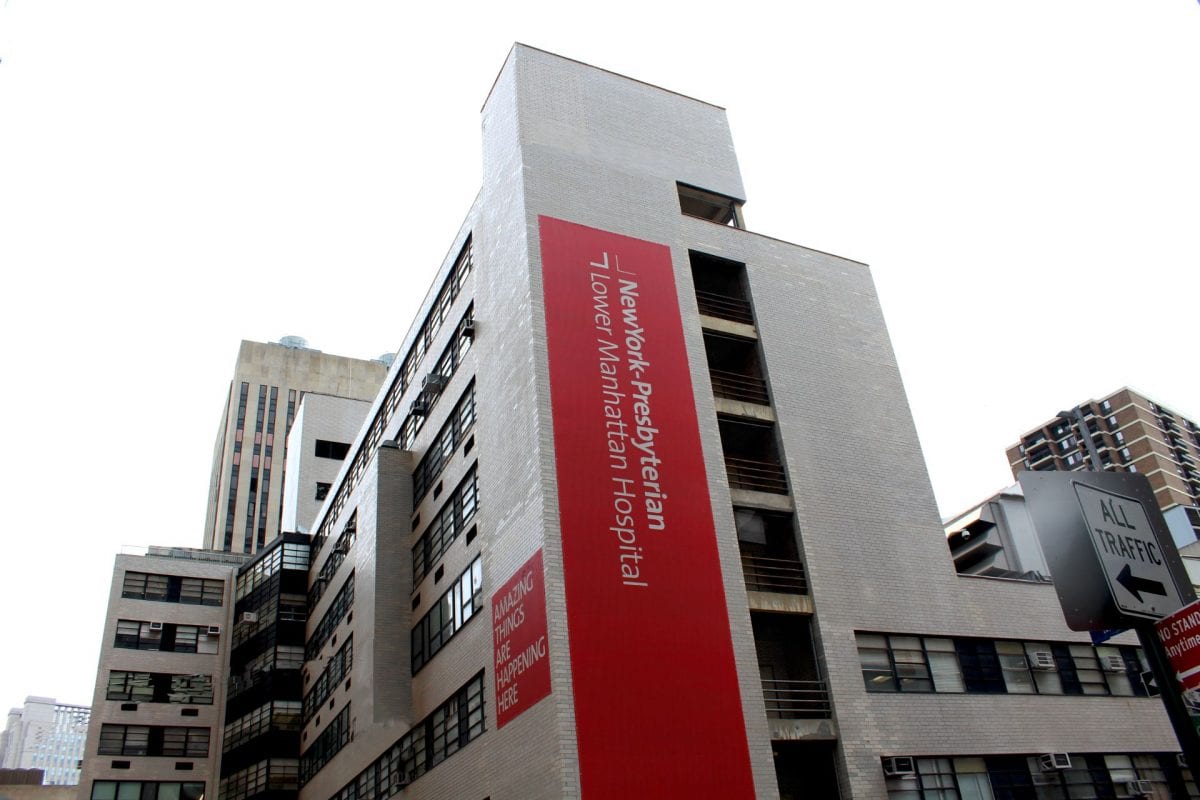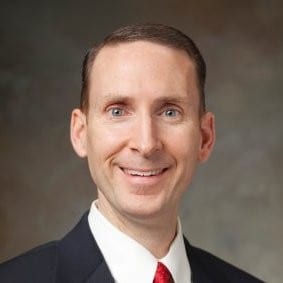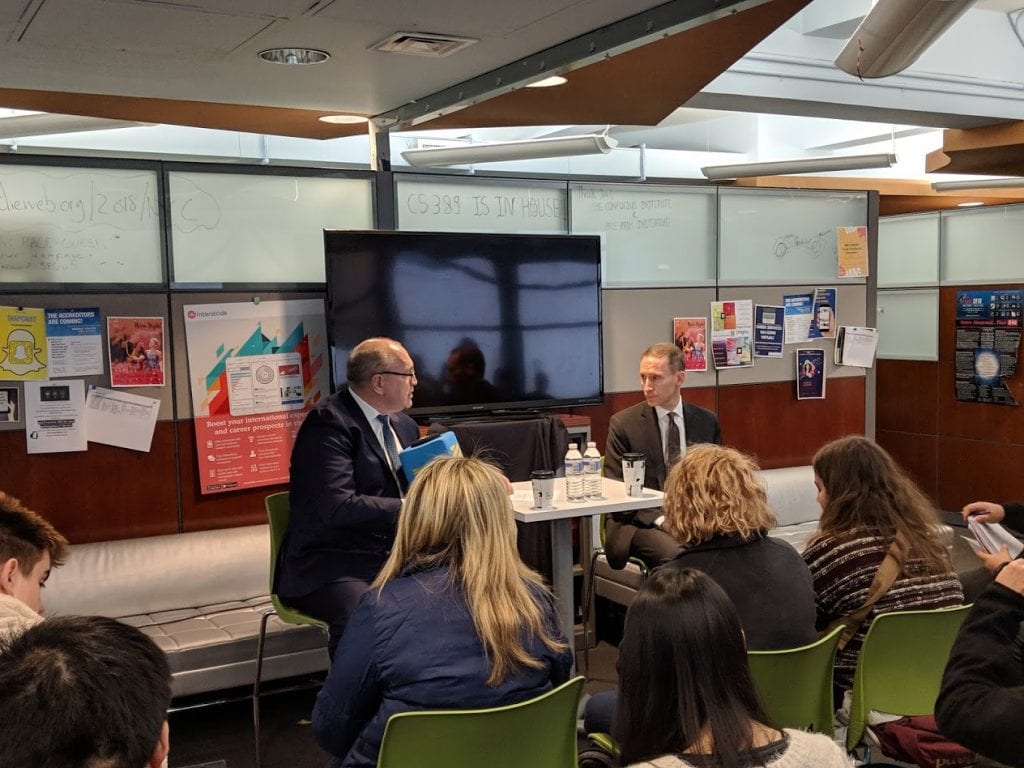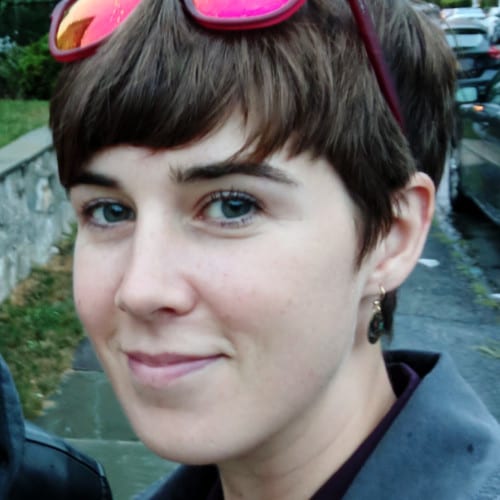On April 24, 2019, the Seidenberg Innovation Awards took place at Pace University’s New York City campus. The event was a celebration of innovation in the tech community and a chance for friends and supporters of the School to get together and share the Seidenberg love.
The evening consisted of a cocktail reception where guests mingled over drinks and appetizers, followed by the awards presentations in Pace University’s beautiful Schimmel Theater. After the awards, dessert and coffee was served in the lobby while guests discussed the event.

Alumni of recent years and some from a little further back turned out in force – the reception lounge was packed and it was fantastic seeing so many familiar faces returning to Pace University to support their alma mater. Many of these students also benefited from scholarships and support provided by our community and took the opportunity to pay it forward to the next generation.
Plenty of Seidenberg School faculty and staff were also present, and Pace President Marvin Krislov and Provost Vanya Quiñones made the most of some excellent photo ops with current and past students.
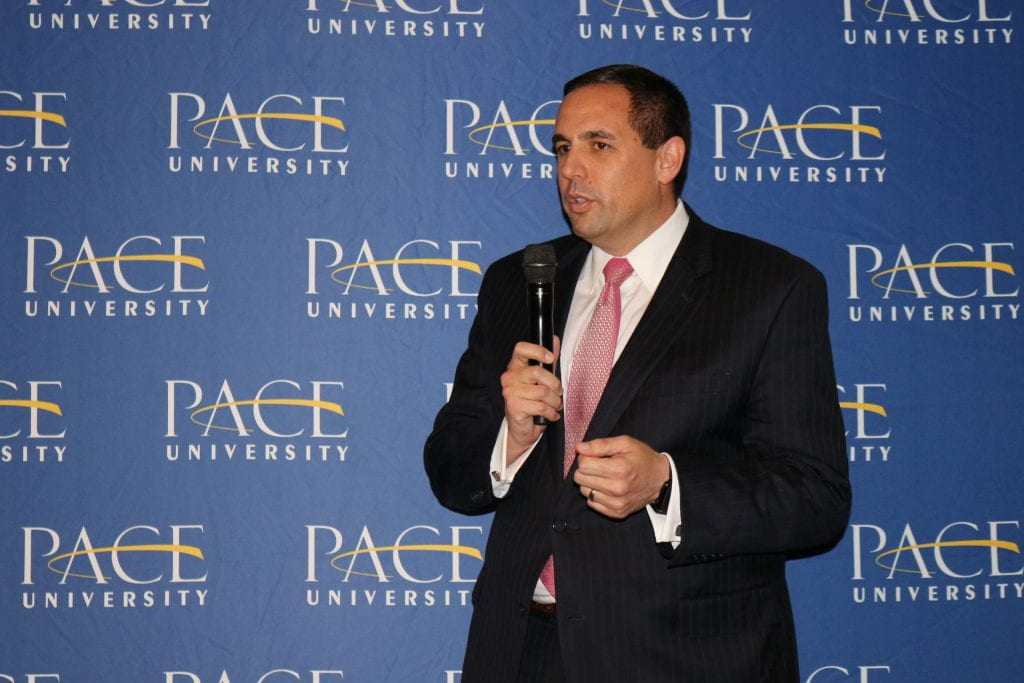
Special guest Peter Fleischut gave a few remarks, saying that “the role that Pace University is playing in training the workforce of the future is critical.”
After an hour and a half of socializing and catching up (we had to start early – guests couldn’t wait to come in!), it was time for the main event, the awards portion! This was the first year the Seidenberg School had tried out this format: previously known as the Leadership and Service in Technology (LST) Awards, former iterations of the event honored a single individual for their contributions to the field. This time, in homage to the Seidenberg School’s 35th anniversary, we updated the event title and went a tad more Hollywood with our delivery. We had three honorees this time, all of whom have had significant impact and who we couldn’t wait to recognize, and we also had the glamor of the Schimmel Theater, which lent itself perfectly to the nature of the event.
Dean Jonathan Hill took to the stage first to give his welcoming remarks and kick off the evening. He introduced President Krislov, who spoke about his experiences with the Seidenberg School.
“One of the things that I’ve always noticed when I walk the halls of Seidenberg is that there’s just this sense of support and care . . . and that’s before I even get to the hugging point!” President Krislov remarked, referring to the stickers placed around Seidenberg that reflect our Design Factory way of thinking. “It’s just really extraordinary and I can’t imagine there are too many schools like that,” he said, adding to Dean Hill, “We owe a lot to you and your leadership.”

Following President Krislov, Dean Hill returned to the stage to talk about what was special about the Seidenberg School. “We are unique because we are high tech and high touch,” he said. “Our students learn from their faculty and from each other in small classes of 24 rather than massive lectures of 200 . . . we are special because we teach technology as a team sport and as a global enterprise: as a student here, your lab partner is as likely to be in Sao Paulo or Helsinki or Singapore as to be in the seat next to you. However, that person in the seat next to you will be your friend and resource for life.”
He continued: “Our students have been called smart, ambitious, scrappy, entrepreneurial and highly motivated to succeed. They come from every economic, racial and geographic background and they are 29 per cent female – and growing. Some of them come from prep school backgrounds some from the most underserved of public high schools, but all of them are here to fulfil their potential. They are the technology work force of 2025, the management layer of 2030 and the founders and C-level executives of 2040.”
Dean Hill then introduced one such student, Allan Krasner, a junior computer science student who became the President of Pace Computing Society in his freshman year and who now runs Seidenberg Creative Labs as Product Manager.
“Coming from a robotics background, I knew that I had an interest in computer science,” Allan told the audience. “So when it came time to search for colleges, it was a fairly simple choice. Pace was one of the few universities in the nation to have a whole school dedicated to computer science.”
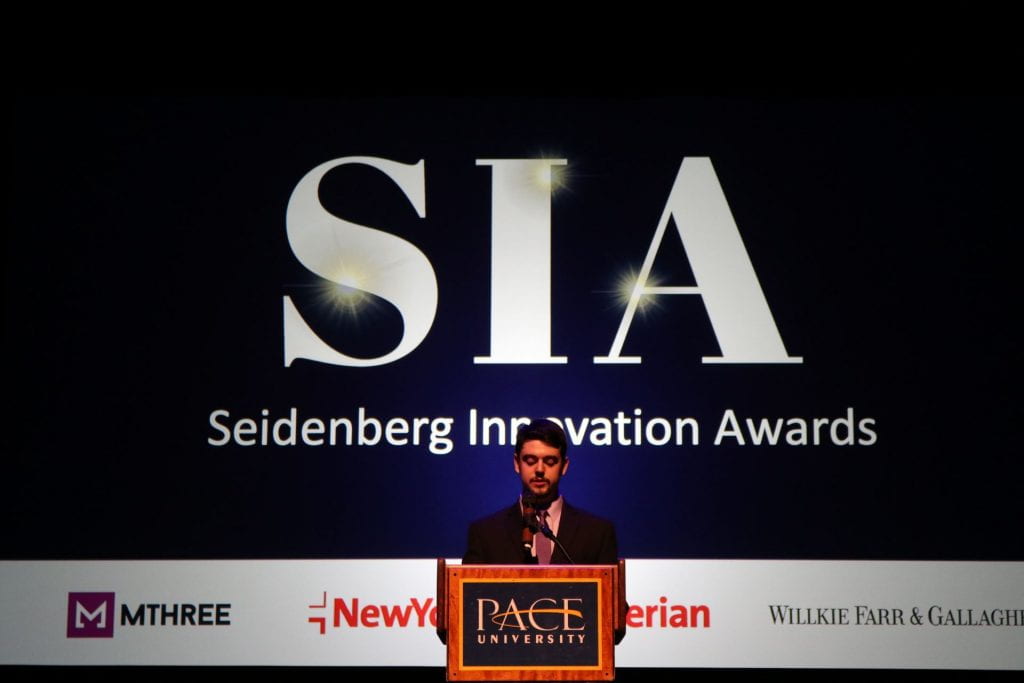
Allan went on to recount his remarkable experience as a Seidenberg student, detailing what made it all possible: “I’m here at Pace because of donors like you . . . your support has empowered me to achieve the goals I set for myself when I came to Pace, and I can confidently say that this is an education that I would not be able to get at any other school.”
He concluded: “I’m just one of the many students here at Pace, each of whom is accomplishing something special and changing the world in their own way. My story nor that of my friends and colleagues . . . would not be possible without help from the amazing Pace staff, Pace faculty, and most importantly supporters and alumni like yourselves.”
It was time for the awards.
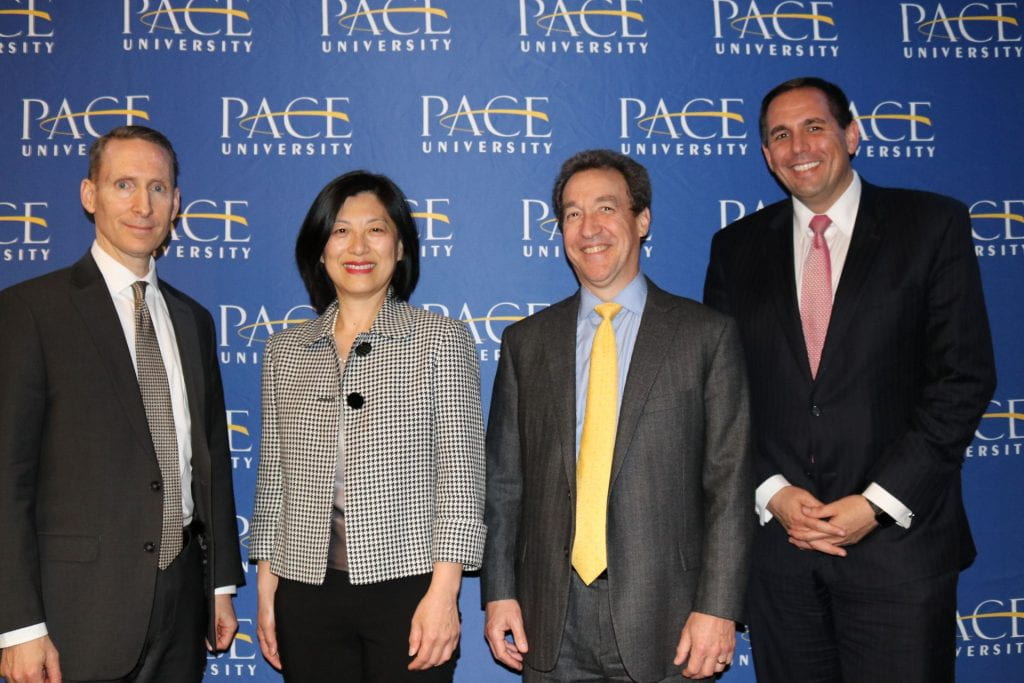
First up was Lesley Ma, the Global Chief Information Officer at Cadillac, who was presented with the Innovative Leadership award. This wasn’t Lesley’s first time at Seidenberg – she was one of our esteemed speakers at our Tech Leadership Series where she shared tips and advice with our students. On this evening, Lesley brought with her one of Cadillac’s virtual reality experiences, which was set up right outside the SIA reception space! Guests got to explore Cadillac vehicles in the virtual space and take them for a test drive (so to speak).
Thank you Lesley and Cadillac for all you have done for the Seidenberg School!
The second award was for Innovation in Fintech, and our honoree was Hank Hyatt, the Co-Chief Information Officer MS&Co. Global Head Fixed Income & Equity Electronic Trading IT at Morgan Stanley. As a Pace alum, Hank was already connected to what makes this University so special, and it was wonderful to have him back on campus to meet with the smart and ambitious students that his leadership has an impact on. Hank also coordinated additional sponsorship from consulting company MThree, which was fantastic. Thank you Hank!
Finally, we were delighted to honor NewYork-Presbyterian Hospital with the Innovation in Healthcare IT award. CIO of NewYork-Presbyterian Hospital, Daniel Barchi, was there to accept the award and share some of the exciting things that are taking place at one of the most innovative healthcare providers in the world. Like Lesley, this was not Daniel’s first time talking tech with the Seidenberg School: he was also on campus for the Tech Leadership Series and we also recently published an interview with him regarding NewYork-Presbyterian’s mission to revolutionize the healthcare IT industry.

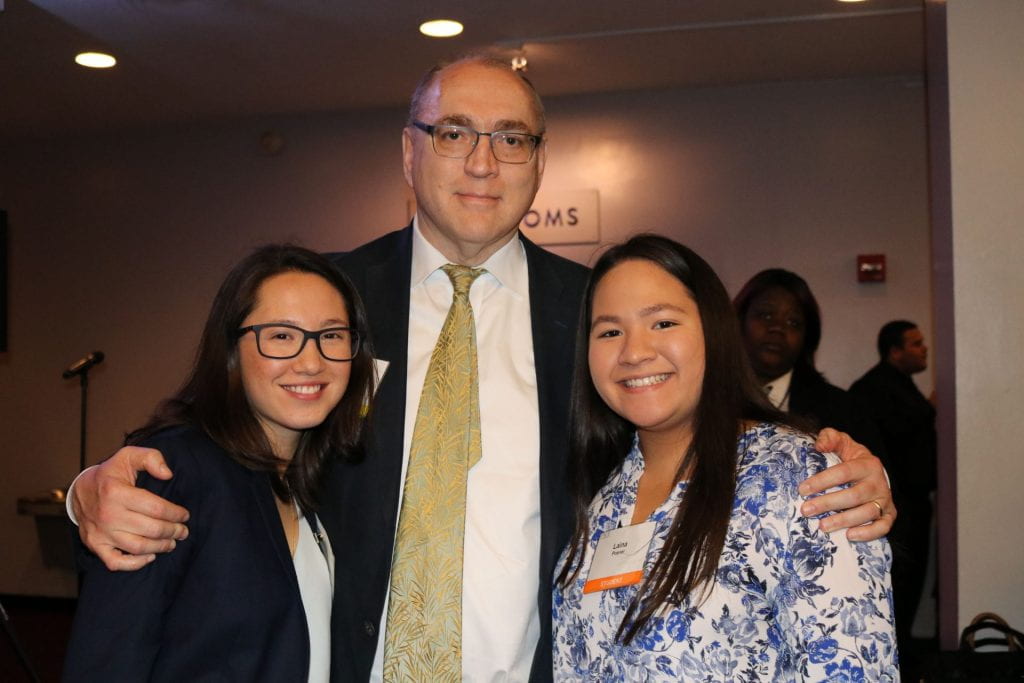
Check out our Instagram story covering the event here!
Follow us on social media for updates!


